When the National Investigation Agency (NIA) began its probe into the Pulwama terror attack in which 40 Central Reserve Police Force personnel were killed last year, it faced a 'blind case' in the absence of any solid proof against the perpetrators.
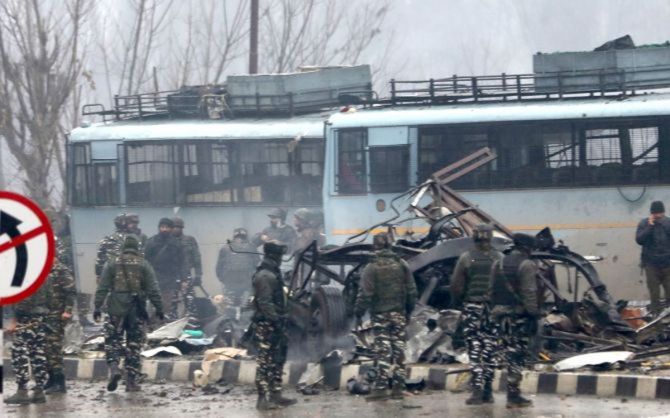
The case posed unique challenges, such as a lot of evidence having blown to pieces in the suicide attack and seven accused being subsequently killed in encounters.
However, the central agency used forensic tests including DNA profiling of the meagre evidence to breach the dead ends.
"It was a blind case for us. There were a lot of murmurs but everything needs to be established beyond doubt in the court of law," a senior official, who was part of the probe, said.
The first challenge was to establish the ownership of the car used by Adil Ahmad Dar, the suicide bomber, according to the chargesheet in the case filed by the NIA in a special court in Jammu on Tuesday.
There was nothing available from the vehicle which carried a cocktail of 200 kg of high-grade explosives -- RDX, Calcium-Ammonium Nitrate, Gelatin Sticks and Aluminium Powder.
As per the chargesheet, with the help of forensic methods and painstaking investigations the serial number of the car that was blown into pieces beyond recognition was extracted and within no time the ownership of the vehicle was established -- from the first to the last owner.
However, the last owner of the car, Sajjad Bhat (named in the chargesheet) of Bijbehara in Anantnag district, had disappeared hours before the February 14, 2019 attack and joined Jaish-e-Mohammed. He was subsequently killed in an encounter in June last year.
"While it was clear that the suicide attacker was Adil Ahmed Dar but the same had to be established with evidence. After picking up human remains from various spots, they were sent for DNA profiling," the official, who requested anonymity, said.
"The suicide attacker was identified and confirmed by matching the DNA extracted from the meagre car fragments with that of the DNA of his father," he said.
Moreover, seven accused wanted in the case by the NIA were killed during different encounters in 2019.
The chargesheet has named Mohammed Umar Farooq, the nephew of Jaish-e-Mohammed chief Masood Azhar, as the main conspirator of the suicide mission.
According to officials, Farooq had infiltrated into India in April 2018 and was subsequently killed in one of the encounters in South Kashmir last year.
Officials said the role of conspirators which included Mudasir Ahmed Khan, Qari Mufti Yasser and Mohd Kamran came to light but all of them were killed in different encounters with security forces.
Khan was killed on March 10, Kamran on March 29, Sajjad Bhat on June 18 of last year while Qari Yasser was shot in an encounter on January 25 this year.
A team led by joint director of the NIA Anil Shukla gathered evidences and statements of terrorists and their sympathisers arrested in different cases in order to expose the conspiracy hatched for executing the audacious attack on the para-military convoy, officials said.
After JeM spokesperson Mohd Hassan in a video claimed that his group was responsible for the attack, it was sent for forensic examination and the Internet Protocol address was traced to a computer based in Pakistan.
"A lot of digital, forensic, documentary and oral evidence establishing a fool-proof case against the accused for this dastardly and barbaric attack has been collected," NIA Deputy Inspector General and spokesperson Sonia Narang said.
"The charge-sheet has brought on record the all-out involvement of Pakistan-based entities to carry out terrorist strikes in India and to incite and provoke Kashmiri youth," she said.
Culminating its 18-month long probe into the fatal terror attack that left 40 CRPF personnel dead in South Kashmir last year, the NIA on Tuesday filed a chargesheet in a special court in Jammu against 19 people including Masood Azhar, the chief of banned terror group Jaish-e-Mohammed, for planning the suicide operation.
Giving details of the 13,500-page chargesheet, Narang said the chargesheet marks the culmination of a year-and-a-half long 'painstaking and meticulous investigation with valuable inputs received from other central and state government agencies as well as foreign law-enforcement agencies'.

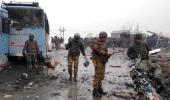
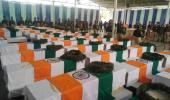
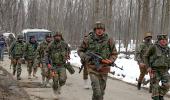
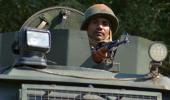






 © 2025
© 2025